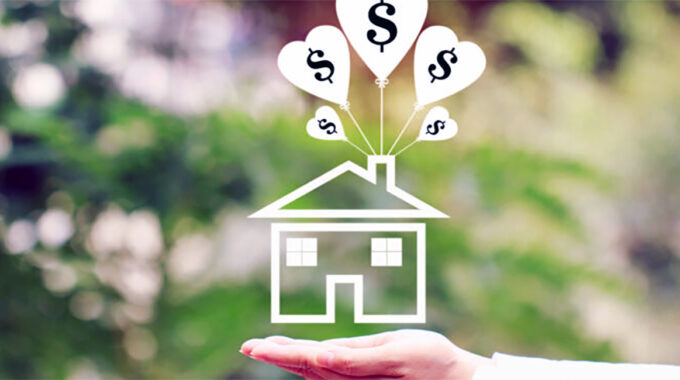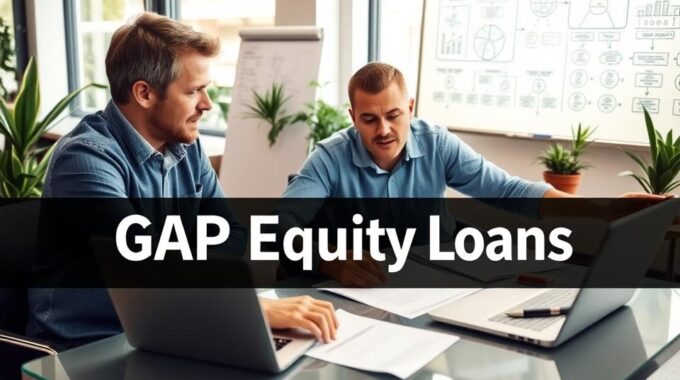Explore your options for Short-Term Loans in Costa Rica. Get quick cash advances with flexible terms and fast approval to meet your financial needs.

How to Make the Most of Your Home Equity in Costa Rica
Understanding How to Make the Most of Your Home Equity
In today’s dynamic financial landscape, savvy homeowners are constantly looking for ways to maximize their assets. One of the most significant assets people often overlook is their home. Not just the physical structure but the value it holds in terms of equity. If you’re a homeowner, it’s essential to understand how to make the most of your home equity. This valuable resource can open doors to financial opportunities, from funding home improvements to investing in your future. In this guide, we’ll explore how to effectively leverage your home equity and turn your home into a powerful financial tool.
What is Home Equity?
Home equity refers to the portion of your home that you truly own. It’s calculated by subtracting any outstanding loan balances from the market value of your home. For instance, if your home is worth $200,000 and you owe $150,000 on your mortgage, your home equity is $50,000.
Understanding and effectively managing your home equity is a crucial aspect of financial planning. It can be a powerful tool to secure loans or finance significant expenses, providing homeowners with financial flexibility and security.
Benefits of Home Equity Loans
Home equity loans offer a multitude of benefits. They provide a way to tap into the value of your home to secure funds for various needs. Some of the key benefits include:
- Speed: Equity loans, primarily through private lenders, can often be processed faster than traditional bank loans.
- Flexibility: These loans offer flexible terms, allowing you to choose a repayment schedule that suits your financial situation.
- Approval: Home equity loans are secured against your property, making it easier to get approval even if you have a less-than-perfect credit score.
One such provider of home equity loans in Costa Rica is Gap Equity Loans. They offer competitive rates, lower closing fees, and more financing options compared to conventional banks.
How to Make the Most of Your Home Equity with Gap Equity Loans
Homeowners can leverage their home equity effectively with Gap Equity Loans. Here’s how:
- Loan-to-Value (LTV): Gap Equity Loans can lend 45% to 50% LTV of the property value. This means if your home is worth $200,000, you could borrow between $90,000 and $100,000.
- Loan Amount: Gap Equity Loans can lend starting from $50,000 and up, providing significant financial resources for homeowners.
By understanding and making the most of your home equity, you can unlock a wealth of opportunities to meet your financial goals in Costa Rica.
Understanding Costa Rica Mortgage Rates
Mortgage rates in Costa Rica play a significant role in determining the cost of equity loans. These rates can vary based on various factors, such as the lender, the type of loan, and the borrower’s credit history. Understanding these rates is crucial as they directly impact the monthly payments and the total amount payable over the loan term. For a comprehensive understanding of Costa Rica’s mortgage rates, consider this resource.
Qualifying for a Hard Money Loan in Costa Rica
Qualifying for a hard money loan in Costa Rica involves several steps. Firstly, the borrower must have sufficient equity in their property. Secondly, they must demonstrate the ability to repay the loan. Lastly, the property itself must meet specific criteria set by the lender.
Gap Equity Loans play a significant role in this process. They work with borrowers to ensure their loan requests are approved quickly. As long as the borrower can repay the loan and has sufficient equity in the property, Gap Equity Loans can typically facilitate a loan that would otherwise be difficult to secure with conventional banks. For more information on qualifying for a hard money loan in Costa Rica, refer to this guide.
Turning Your Home into an Asset with Gap Equity Loans
Homeowners can turn their homes into valuable assets with Gap Equity Loans. By using their home as collateral, homeowners can secure funds quickly and efficiently. Gap Equity Loans offer:
- Funds in a lump sum: Borrowers receive the loan amount in one lump sum, providing immediate access to large amounts of money.
- Fixed monthly payments: Borrowers repay the loan in fixed monthly installments, making it easier to plan and budget.
- Fixed interest rate: The interest rate is fixed for the life of the loan, protecting borrowers from potential increases in interest rates.
Get Started Today
If you’re a homeowner in Costa Rica looking to leverage your home equity, consider Gap Equity Loans. With their competitive rates, flexible terms, and quick approval process, they can help you unlock the financial potential of your home. Apply for a loan now!
Conclusion
Understanding and effectively leveraging your home equity is a powerful strategy for financial growth and stability. Whether you’re looking to finance a major purchase, invest in your future, or simply want to maximize your assets, your equity can provide the means to achieve your goals. Remember, it’s not just about owning a home; it’s about making the most of your equity. With the right knowledge and strategies, you can turn your home into more than just a place to live – it can be a cornerstone of your financial plan. So, take the time to understand your equity, explore your options, and make informed decisions that will help you make the most of your home equity.
-Written by Glenn Tellier (Founder of CRIE and Grupo Gap).
*Loan Request Form
Frequently Asked Questions
What builds the most equity in a home?
The most common way to build equity in a home is by making regular mortgage payments to reduce the loan balance. Over time, as the value of your home increases, so does your equity. Home improvements can also build equity by increasing the value of your home.
What is 50% of home equity?
50% of home equity means that you own half of the value of your home outright. For example, if your home is worth $200,000 and you owe $100,000 on your mortgage, you have 50% equity in your home.
Should I use equity in my house?
Whether or not you should use equity in your house depends on your financial situation and goals. Home equity can be a valuable resource for large expenses or investments. However, it’s important to remember that using your equity means putting your home at risk if you can’t repay the loan. Companies like Gap Equity Loans can provide guidance on how to use your equity effectively.
How does equity work in a house?
Equity in a house refers to the difference between the market value of the house and the amount you owe on it. As you pay down your mortgage and the value of your home increases, your equity grows.
Is a high equity good?
Yes, having high equity in your home is generally reasonable. It means you have a more significant stake in your property and can access more funds through a home equity loan or line of credit. It also provides a cushion if home prices fall.
What does 50% LTV equity mean?
50% Loan-to-Value (LTV) equity means that the amount of your loan is 50% of the value of your home. For example, if your home is worth $200,000 and you have a loan of $100,000, your LTV is 50%. Companies like Gap Equity Loans can lend up to 50% LTV of the property value.
What is the downside of a home equity loan?
The main downside of an equity loan is that your home serves as collateral. If you fail to repay the loan, the lender could foreclose on your home. It’s essential to consider this risk before taking out an equity loan.
How much equity can I borrow?
The amount of equity you can borrow depends on the lender and your financial situation. However, most lenders allow you to borrow up to 50% of the value of your home minus the amount you owe on your mortgage. Gap Equity Loans, for example, can lend starting from $50,000 and up.
Contact us for more information, or fill out a loan request now!
Need Residency status in Costa Rica? – Click HERE.
Looking for Real Estate? – Click HERE.
Want to invest? – Click HERE.
Article by Glenn Tellier (Founder of CRIE and Grupo Gap)






Comments (0)